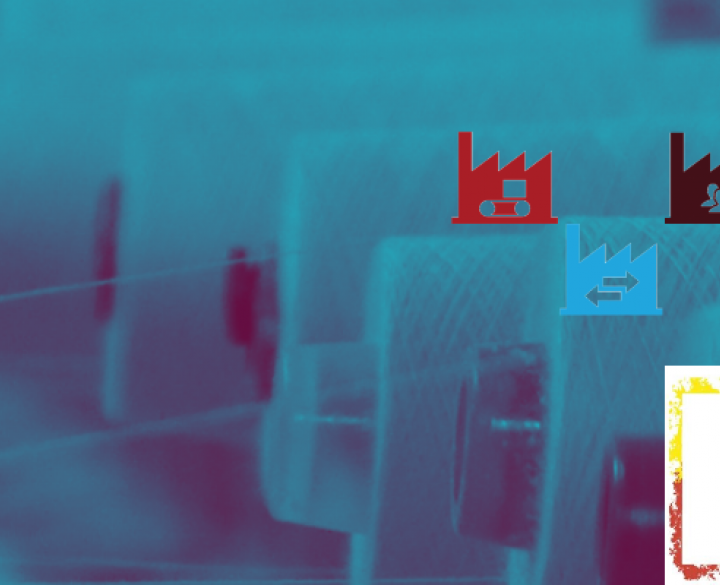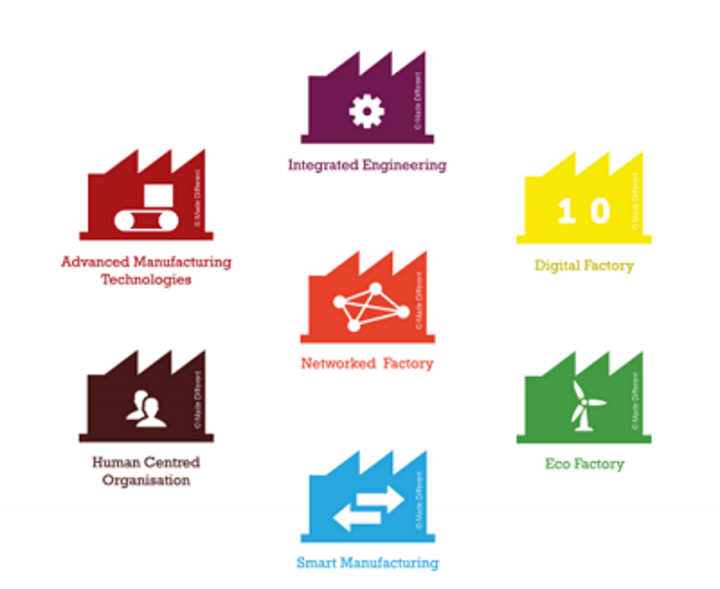Has your company made exceptional progress in recent years in technology, speed, automation, quality, work organisation, sustainability or staff growth?
Then you have a chance to win a Factory of the Future award.
To become a Factory of the Future, you must achieve a score of at least 8/10 for the seven core transformations:
Transformation 1: Advanced Manufacturing Technologies
This transformation assumes the deployment of state-of-the-art manufacturing equipment. Given the wage handicap, our companies cannot afford to produce with machinery that is outdated compared to that of competitors. Exemplary companies are even developing their own devices for key aspects of production, giving them a machine park unique in the world.
Transformation 2: Integrated Engineering
Future-oriented manufacturing companies develop their products and services in function of the entire value chain. This requires an integrated design approach to processes such as sales, production, maintenance and recycling. The use of virtual models and simulations is crucial here. Optimising value across the value chain leads to robust, high-quality processes.
Transformation 3: Digital Factory
A fusion of the real and digital worlds is imminent. Physical objects are being wirelessly integrated into information networks. In the factory of the future, operational processes are digitised and interconnected via the internet.
Transformation 4: Human-centred organisation
Important features for locally anchoring production are the employees. The involvement of employees in the future development of their company is crucial. The transformation 'Human Centered Production' forms a crucial condition for sufficiently rapid realisation of the necessary smart breakthroughs within the other 6 transformations. Self-managing cells of close-knit teams organise incoming work with high autonomy, and therefore only need the specific attention or supervision of a manager for a fraction of their working time.
Transformation 5: Networked Factory
Companies are evolving from solo players to networked organisations. This allows risk and capital to be distributed among the different parts of a cohesive network. An optimised ecosystem of suppliers and partners creates room for flexible partnerships. Even within the traditional company boundaries, a company evolves towards a network structure, where the different parts can be flexibly deployed in external networks.
Transformation 6: Eco Factory
Sustainable production systems consider every stage in the life cycle of a product, from the purchase of materials, through production and actual use, to waste disposal. They manage to close their material loop and drastically reduce their energy consumption. The necessary resilience allows these sustainable systems to respond to the changing availability of materials.
Transformation 7: Smart Manufacturing
Our manufacturing companies must be able to respond to a rapidly changing market demand with the ultimate approach being batch size 1 production. This requires them to "retune" their production systems to more flexible, self-learning, adaptive systems. This necessitates both organisational and technological breakthroughs. Cyber Physical Systems are the building blocks and provide the connection between different production components and make a production system smart.
you would like to see where your company stands and take a chance?






